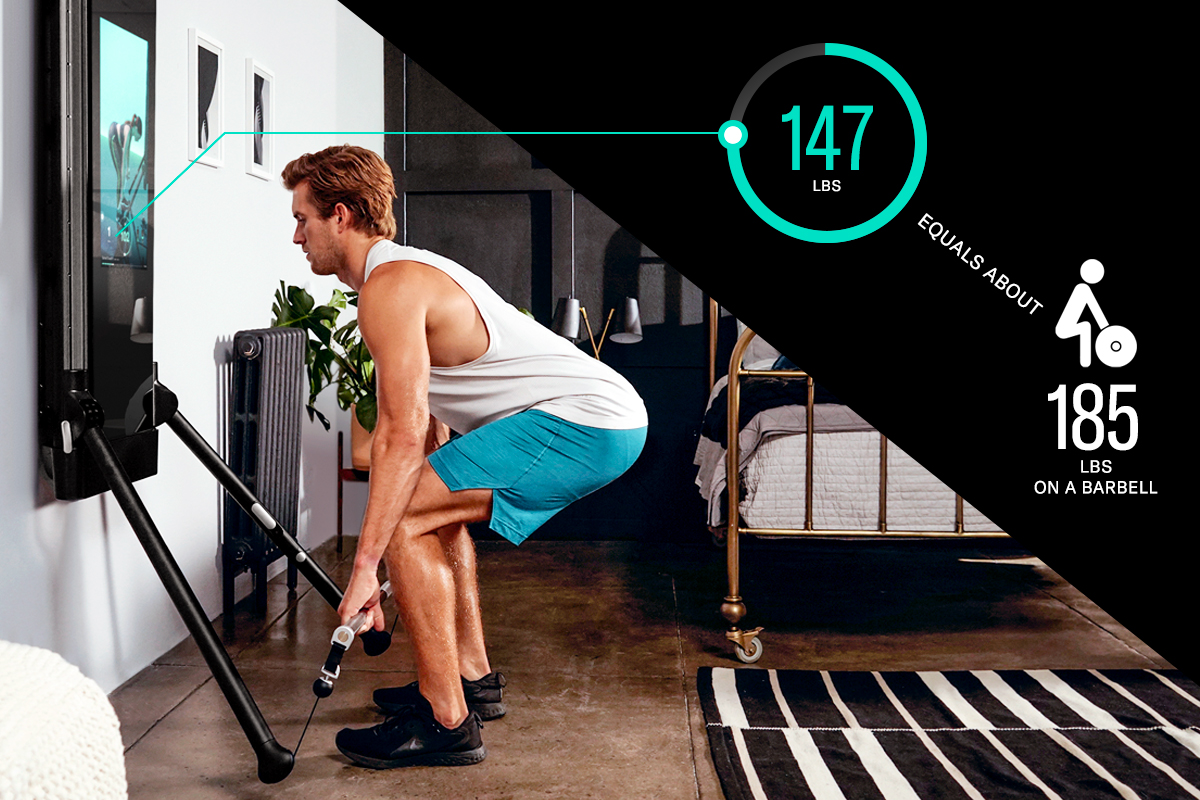Here’s what the experts and research say about the time-restricted eating trend.

Of all the trendy fad diets out there, intermittent fasting has become one of the most popular strategies for weight loss or maintenance. Instead of counting calories or following a meal plan, people who try intermittent fasting only eat during a specific time window each day. It’s a seemingly straightforward approach, and many people experience a desirable shift in their body composition. But does intermittent fasting really work for weight loss as much as devotees claim?
To better understand the science behind time-restricted eating and whether or not it’s a sustainable and safe diet for everyone, we looked at the most recent research and got advice from trainers, registered dietitians, and sports performance specialists. Here’s what you need to know before you decide whether intermittent fasting is for you.
What Is Intermittent Fasting, and Does It Work for Weight Loss?
Intermittent fasting, or time-restricted eating , is a broad term that refers to the practice of consuming food only during a pre-designated feeding window, the parameters of which can vary significantly. For example, someone following a 16:8 plan (16 hours of fasting with an eight-hour window for food consumption) might eat only between 8 a.m. and 4 p.m., while someone adhering to a more moderate 12:12 protocol might finish their last meal by 8 p.m. and break their fast at 8 a.m. the next morning. Those favoring a more aggressive approach may alternate between full days of fasting and “normal” eating days.
Research shows that intermittent fasting can be effective. A systematic review of 27 studies found that, overall, intermittent fasting does result in weight loss. However, according to the experts, the reason for its effectiveness is the same that’s at the root of every other trendy diet: calorie restriction.
“I don’t think we can overstate the fact that the only way to lose weight is to be in a calorie deficit,” says Tonal coach Tim Landicho, a certified personal trainer and nutrition coach. And the only way to achieve a calorie deficit is to burn more calories than you consume. In other words, when it comes to dropping pounds, it’s about what you eat and how much, not when you eat it.
A recent study published in the New England Journal of Medicine supports this point. It compared the weight-loss results of clinically obese participants who restricted their calories to those who restricted their calories and followed an intermittent fasting protocol. The intermittent fasting group consumed their calories (1200 to 1500 for women, 1500 to 1800 for men) between the hours of 8 a.m. and 4 p.m., while the other group ate the same amount whenever they wanted.
At the conclusion of the 12-month study, the authors found no substantial differences between the two groups in regard to reduction in body weight or body fat. Both groups lost weight, but there was no evidence that eating within a specific timeframe improved outcomes.
Are There Benefits to Intermittent Fasting?
While achieving a calorie deficit seems simple, humans and our relationship to food are far more complicated.
“People are more than just their physiology,” says Landicho. “People are also emotional beings. People are psychological beings.” For some people, the structure of intermittent fasting provides boundaries that help keep their calorie consumption within a healthy range.
“Some people need hard-set rules. They need to hear, ‘After 7 p.m., you’re not going to eat anything.’ And that will give them the ability to restrict their calories,” says Jaclyn Sklaver, MS, CNS, LDN, sports nutritionist and founder of Athleats Nutrition. “If you say, ‘You can eat after 7 p.m., but you can only have 200 calories,’ that might be harder,” she says. A non-negotiable cut-off time can help curtail mindless grazing and late-night snacking.
Additionally, some individuals—particularly those who are considered “pre-diabetic” or have trouble managing blood sugar levels—may benefit from intermittent fasting that’s conducted under the watchful care of a physician or dietitian, says John Christie, a registered dietitian and the director of Curriculum Intelligence at Tonal.
“When you have that period (of fasting) during which there’s no food, then you are more likely to create a better utilization of fat for an energy source,” he explains. “When you’re using fat as an energy source, then your blood sugar levels aren’t going to be rising very rapidly or depleting rapidly as they do when carbohydrates are the primary source of fuel,” he says.
Essentially, by using fat for energy, you can “blunt the swings of blood sugar,” Christie says. But, again, this type of intermittent fasting should be monitored by a dietitian or physician who can track their patient’s progress and adjust their plan as needed.

Risks and Drawbacks of Intermittent Fasting
One of the biggest strikes against intermittent fasting is that it’s hard to sustain in an environment where cheap calories are readily available 24/7. Beyond that, intermittent fasting can also take a toll on your personal relationships, athletic performance, and overall health. So before you try it, consider these factors.
Intermittent fasting tends to have adverse effects on women.
According to Stacy Sims, PhD, female physiology expert and Tonal Advisory Board member, time-restricted eating can work for men, but severe calorie restriction is typically a “huge misstep” for women.
“(In women who fast), we see a downturn of resting metabolic rate, and an increase in visceral fat,” she says. “We do see some glucose tolerance improvement, but we also see an increase in our LDL instead of our HDL for cholesterol. And we see an increase in sympathetic drive,” which leads to that “tired but wired” feeling. And if women do lose weight while fasting, it’s often due to a loss in muscle mass, not fat.
The reason for the disparity between the sexes comes down to neurophysiology. The female brain contains more kisspeptin neurons, which stimulate endocrine function. Kisspeptin is sensitive to dips in energy availability, so the fact that women have more kisspeptin makes them less tolerant to fasting and calorie restriction.
“The body gets into the sympathetic drive of, ‘Oh my gosh, I don’t have enough calories. What am I going to do?’” Sims says. The unwanted side effects of intermittent fasting are evidence of the body struggling to conserve resources.
Socializing can be tough.
Food is a big part of how we connect with others, and it can be hard to navigate social situations when your meals are restricted to a specific timeframe. “Someone gets invited to a birthday dinner, and either the experience is miserable for them because they’re not able to partake, or the flip side is they eat outside of that window and say, ‘Screw it, I ate outside of my window. Might as well throw it all out the window.’ And they end up not being at a calorie deficit,” says Landicho.
It doesn’t account for what you eat.
A narrower timeframe for meals may create a sense of urgency around eating that encourages people to eat more than they usually would.
“The problem with intermittent fasting is that it dictates when you can eat, but it doesn’t really tell you what you can eat,” says Fabio Comana, MA, MS, faculty within the School of Exercise and Nutritional Sciences at San Diego State University. “Let’s say you’re someone who eats 3,000 calories in a day. Now, I say, ‘Okay, we’re going to restrict that to only eating eight hours of the day, but you eat that same 3,000 calories in that eight-hour window. You’re not going to lose weight, because you’re still consuming the same amount of calories,” he says.
Getting the timing right is tricky.
There are physiological benefits to eating early in the day. Your body’s sensitivity to insulin is greater in the morning, and people who eat soon after they wake up tend to have better appetite control throughout the day, says Comana.
“Ghrelin is the hormone that triggers your desire to eat. When you wake up in the morning, as your body’s ramping up, if you don’t feed yourself, your liver glycogen stores get lower, and your ghrelin levels get higher. And then that sometimes triggers binge eating and an uncontrolled appetite,” he says.
However, scheduling your eating window early in the day can leave you tempted to snack late at night. “In the morning, we’re distracted. We have an agenda,” Comana says. “The brain has just woken up. It’s fresh. It’s charged. But, later in the day, it’s like a muscle that has done a thousand repetitions. It’s weak and fatigued.” Faltering willpower combined with evening downtime can make sticking to a fast especially challenging.
Ideally, your workouts should also coincide with your eating window. If you typically train in the evening, fasting can take a toll on your performance and recovery if you can’t fuel appropriately. “You can’t deprive yourself of carbohydrates because that’s your fuel for your workout. Carbohydrates are also used for recovery,” Sklaver says. And protein, of course, is crucial to muscle-building.
Intermittent fasting may not be a sustainable, long-term solution.
Many people who attempt intermittent fasting do so on their own, without the guidance of a dietitian or healthcare professional, using the numbers on the scale as their primary metric. If they experience weight loss, they assume the diet is working and may continue to restrict their calories indefinitely. However, maintaining a restrictive diet for an extended period of time can have adverse health effects.
“You may be thinking, ‘I’m losing weight. It seems to be working.’ But from the standpoint of your body’s natural physiology and metabolism, it may not be working for you,” says Comana. “For example, you might have elevated cortisol levels because you’re not getting enough calories,” says Comana. “I might be concerned that you’re not getting enough nutrients in your diet. You’re restricting your food, but then you also might be changing your food choices,” he says.
“My suggestion would be you should consult with a dietitian who can evaluate the quality of your diet to determine whether it’s something that’s sustainable,” Comana says. “Not just sustainable from the fact that you have the ability to do it, but is it sustainable from a physiological standpoint?”
Bottomline: In the end, the best diet is the one that works for you and that you can sustain over the long haul. It should fuel your physical activity and support your overall goals—especially if your goal is weight loss.


